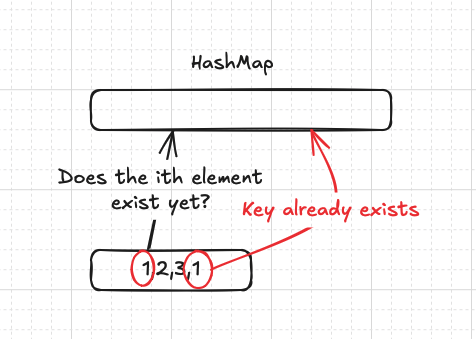(づ ◕‿◕ )づ Jacques Thurling
LeetCode Adventures Part 1
Dec 04, 2024My LeetCode journey
This will be the start of a running series, it’s not going to be very in-depth, it’s mainly around the problems I did and the solutions I found along with some extra explanations, so without further ado.
Valid Anagram - Easy
My Solution:
class Solution(object):
def isAnagram(self, s, t):
"""
:type s: str
:type t: str
:rtype: bool
"""
s_dict = {}
t_dict = {}
for c in s:
if c not in s_dict:
s_dict[c] = 1
else:
s_dict[c] = s_dict[c] + 1
for c in t:
if c not in t_dict:
t_dict[c] = 1
else:
t_dict[c] = t_dict[c] + 1
if len(s_dict.keys()) > len(t_dict.keys()):
for k in s_dict:
if s_dict.get(k) != t_dict.get(k):
return False
else:
for k in t_dict:
if s_dict.get(k) != t_dict.get(k):
return False
return True
Why this works - time and space complexity
This works by adding each occurrence of the characters in the string to a HashMap, once the values are stored in the HashMap we can check if the amount of times the characters show up in the string is the same, we do this by looping over the HashMap and check the key-value pairs.
Using two hash maps cause the solution’s space complexity to be O(n + m) since we need to allocate extra memory based on both string inputs.
For time complexity I am looping over the strings in total of 3 times making it roughly O(n + m + k) , which isn’t ideal.
Further optimisations
I can re-arrange the if statement at the end of my solution to be at the top of my function to check the lengths, since if two words have different lengths they cannot be anagrams of each other.
if len(string_1) != len(string_2):
return False
Contains Duplicate - Easy
My Solution
class Solution(object):
def containsDuplicate(self, nums):
"""
:type nums: List[int]
:rtype: bool
"""
numbers = {}
for n in nums:
if n not in numbers:
numbers[n] = True
else:
return True
return False
Why this works - space and time complexity
This achieves a space complexity of O(n) since we can use memory for up to each element of the array to store it in the HashMap.

This can also take up to O(N) time complexity since we can possibly iterate over the entire array making the complexity equal to the length of the input (N) .